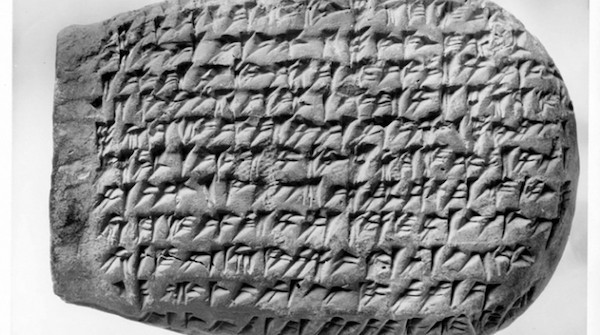image1
A cuneiform tablet from Iran, photographed by the Oriental Institute.
Iranís ambassador and permanent representative to the United Nations says the United States must return the countryís Achaemenid clay tablets without any exceptions and excuses.
According to Majid Takht-Ravanchi, the United States has repeatedly resorted to excuses to put off repatriating the tablets to Iran.
"About 90 years ago, the Achaemenid tablets were transferred to the Oriental Institute of the University of Chicago on a three-year loan," IRNA on Tuesday quoted Takht-Ravanchi as saying.
"Unfortunately, they have not been fully returned since then," he added.
Several batches of Achaemenid-era clay tablets and related fragments have been delivered to Iran in recent years, but thousands of parts are still held in the Oriental Institute of the University of Chicago.
Takht-Ravanchi asserted Iranís demand is "clear," reiterating that all of the loaned tablets must be delivered to the Iranian government intact.
He said the tablets are part of Iranís culture and history and belong to the people of Iran.
"The United States postpones this every time under a pretext, while the Americans themselves acknowledge that these tablets came to the United States on loan but were not fully returned," the Iranian envoy added.
The tablets were discovered by archeologists affiliated with the University of Chicago in the 1930s while excavating in Persepolis, the ceremonial capital of the Persian Empire.
In 2019, almost 1,800 artifacts, from a collection of tablets that would come to be known as the Persepolis Fortification Archive, were returned to Iran.
The collection gave a detailed look at aspects of Achaemenid society, provided insight into the Persian Empire centered in what is now Iran, and influenced how scholars view Achaemenid art, language, and history.
The Achaemenid Empire was the largest of the empires of the ancient Near East and extended from the Balkans and Egypt to India and Central Asia.
According to the Oriental Institute, the tablets illustrated the "support of the king and court, deployment of workers, practice of religion, the development of seal art, the interplay of languages, and more."
In 2006, a US federal court ruling sought to seize and auction the invaluable collection of ancient clay tablets. However, an appeals court later overturned the ruling, and in 2018, the US Supreme Court affirmed the subsequent ruling that the collection cannot be taken away.











